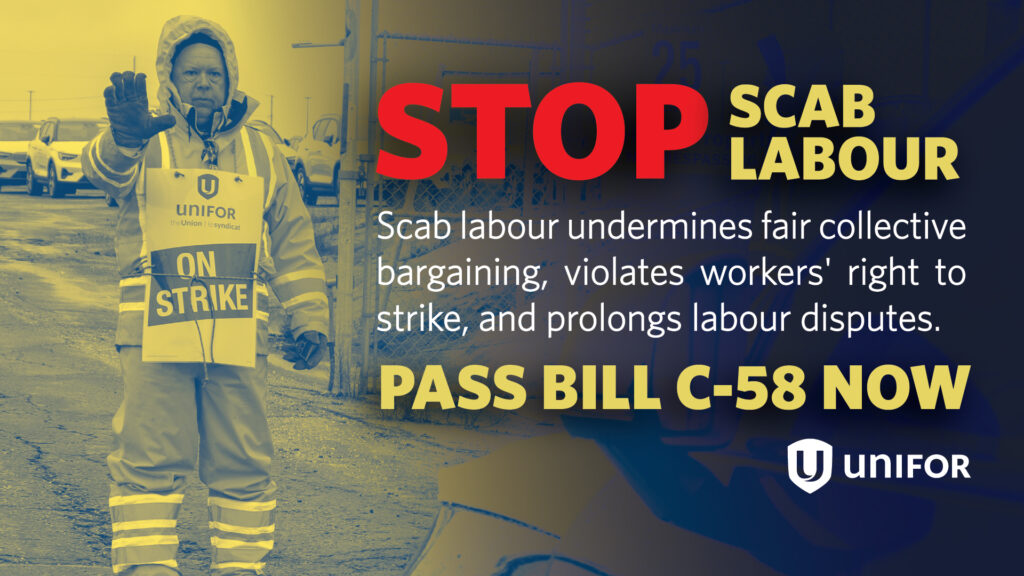Labour groups are celebrating the passing of federal anti-scab legislation, but the Canadian Federation of Independent Business (CFIB) is warning that it “tilts Canada’s labour laws even more heavily in favour of unions.”
“If the legislation is passed and proclaimed, the current and future governments will deeply regret removing this important provision for employers keeping the economy moving during strikes or lockouts,” said Dan Kelly, president and CEO of CFIB. “Unions are already threatening a ‘summer of discontent,’ and what does the government and opposition do in response? They vote to make it worse.”
When work stoppages shut down essential services, such as federally regulated ports, railways and airports, it’s small businesses, their employees and Canadians who pay the price, he said. The CFIB is calling on the Senate to provide “sober, second thought” on the bill and its implications.
Unifor, though, applauded MPs for unanimously passing the amended Bill C-58, and is urging the Senate to approve the law so it can be implemented as soon as possible.

“This legislation is about protecting the right to fair and free collective bargaining, including the right to strike,” said Unifor National President Lana Payne. “Workers have fought for generations to get to this day, but there is still a final step.”
Bill C-58: An Act To Amend The Canada Labour Code would restrict federally-regulated employers, including airlines, banks, and telecom companies from using scab labour during strikes or lock-outs or face fines of $100,000 a day.
Quebec and British Columbia both have provincial anti-scab legislation to prevent employers from undermining the entire collective bargaining process, it said.






